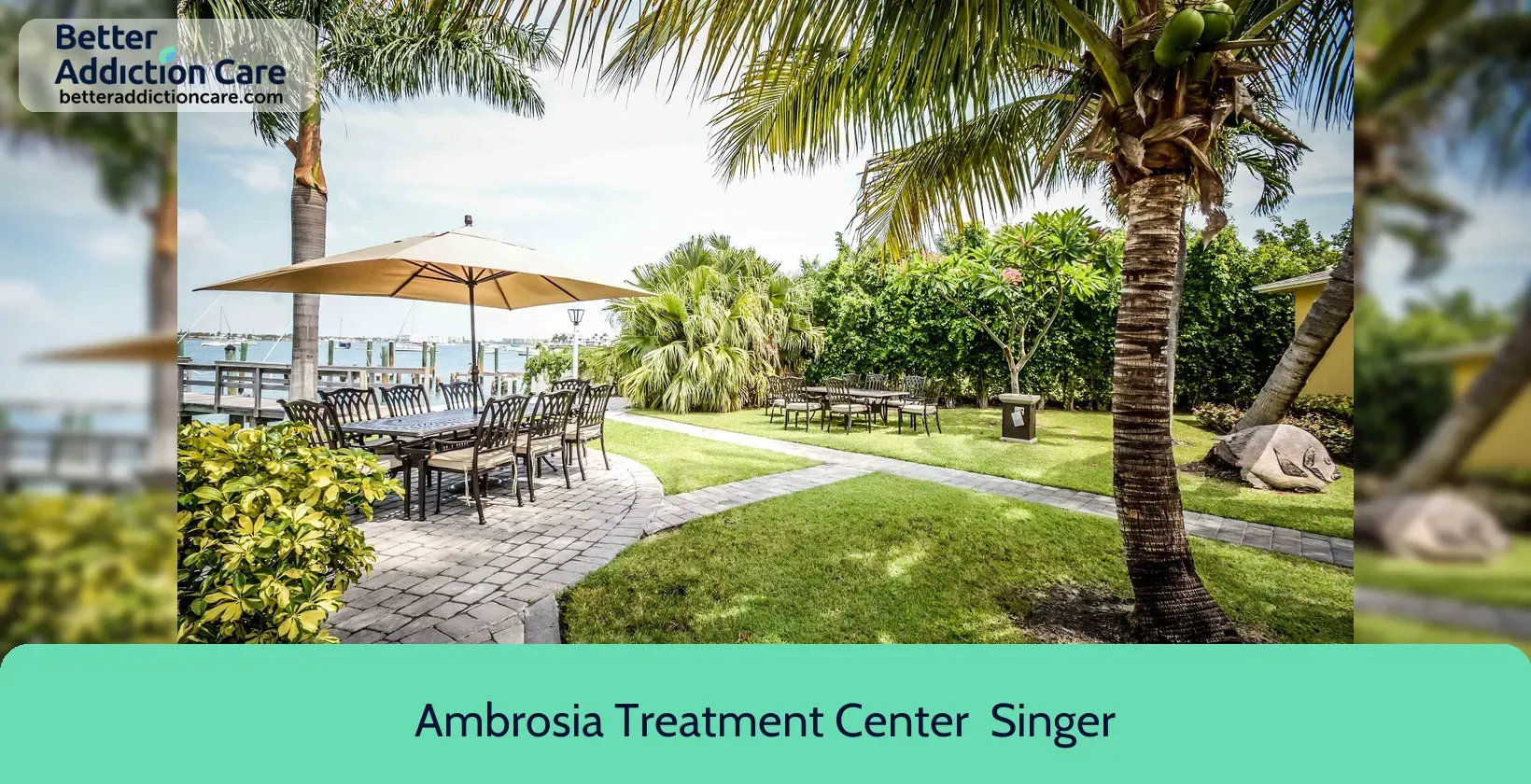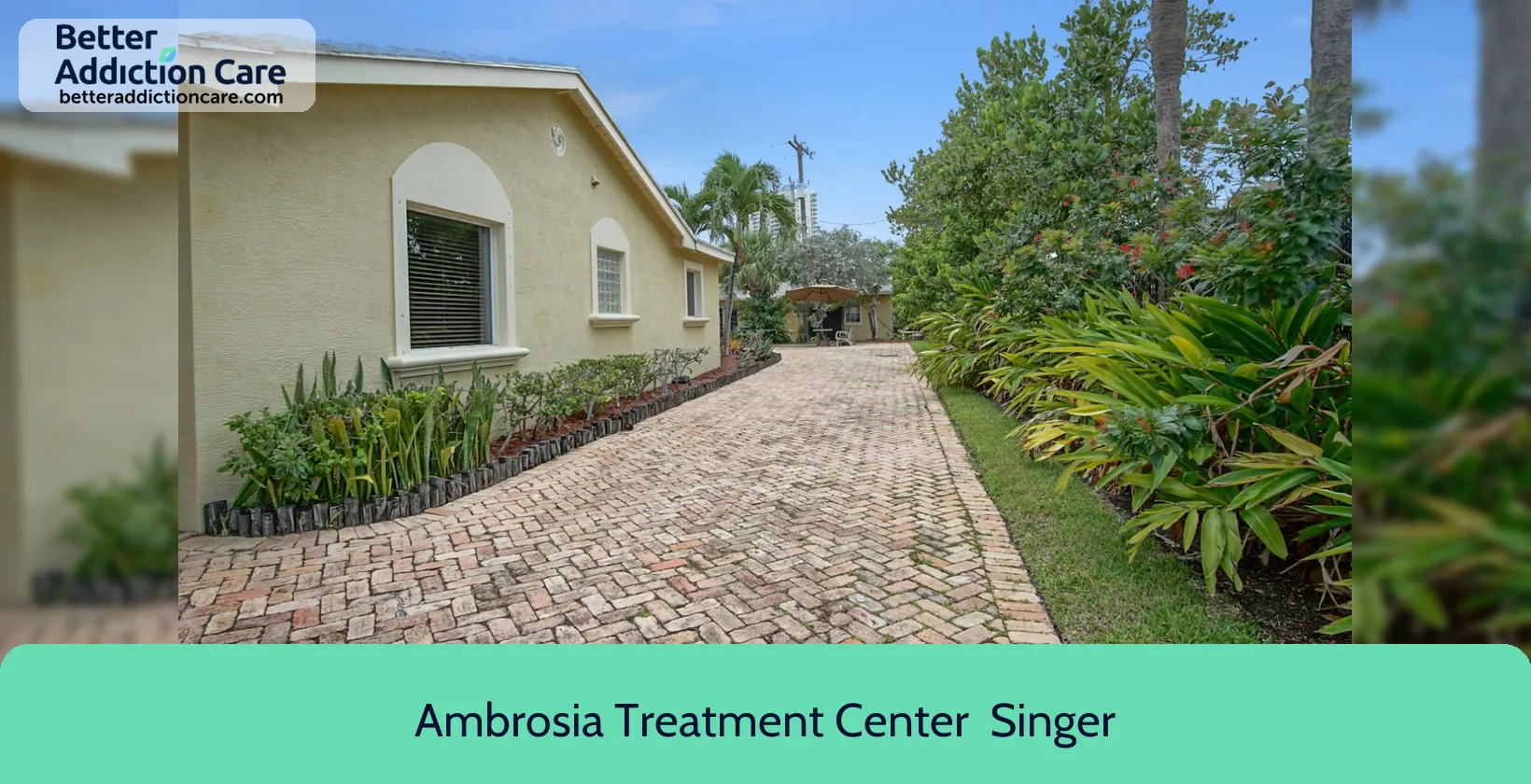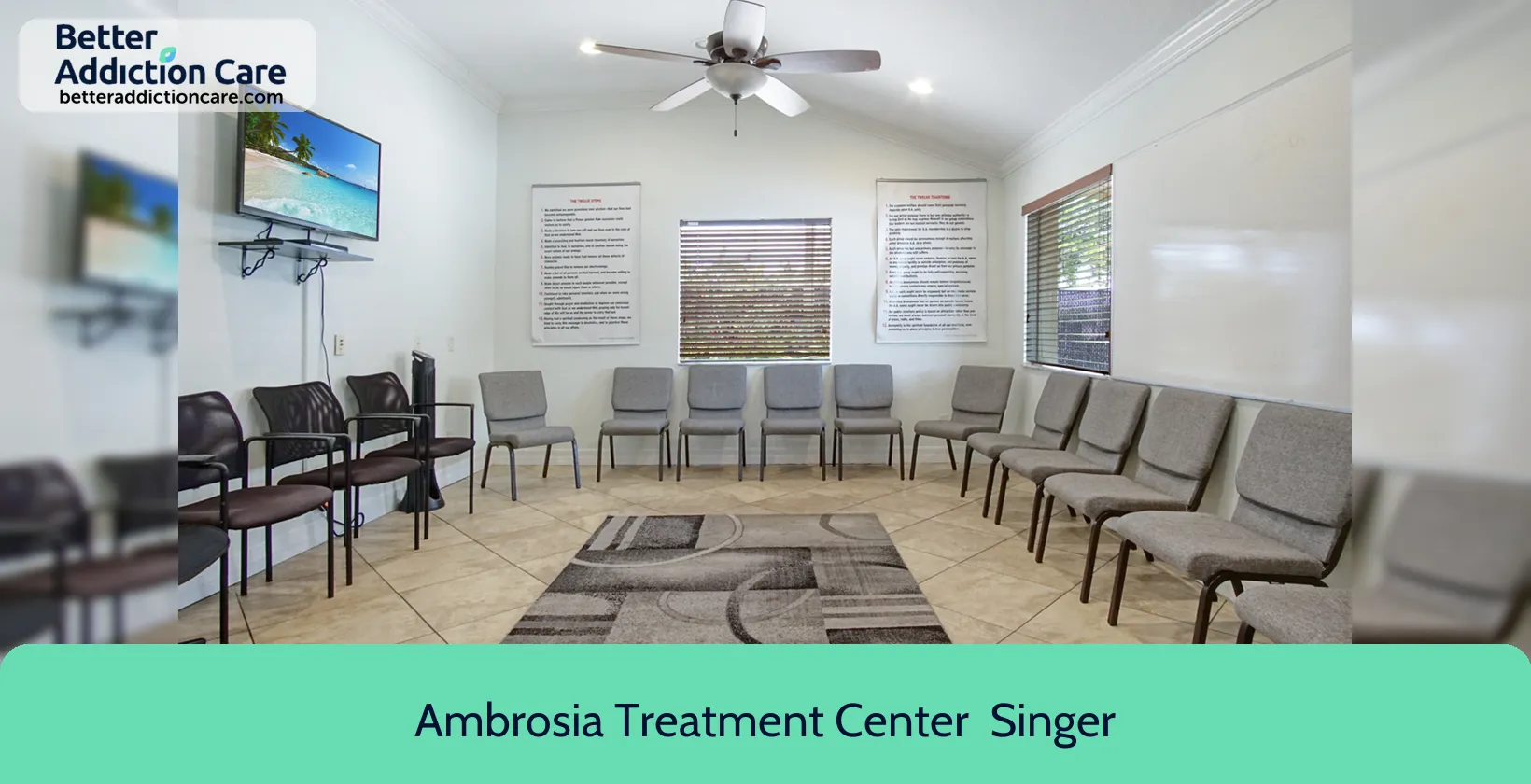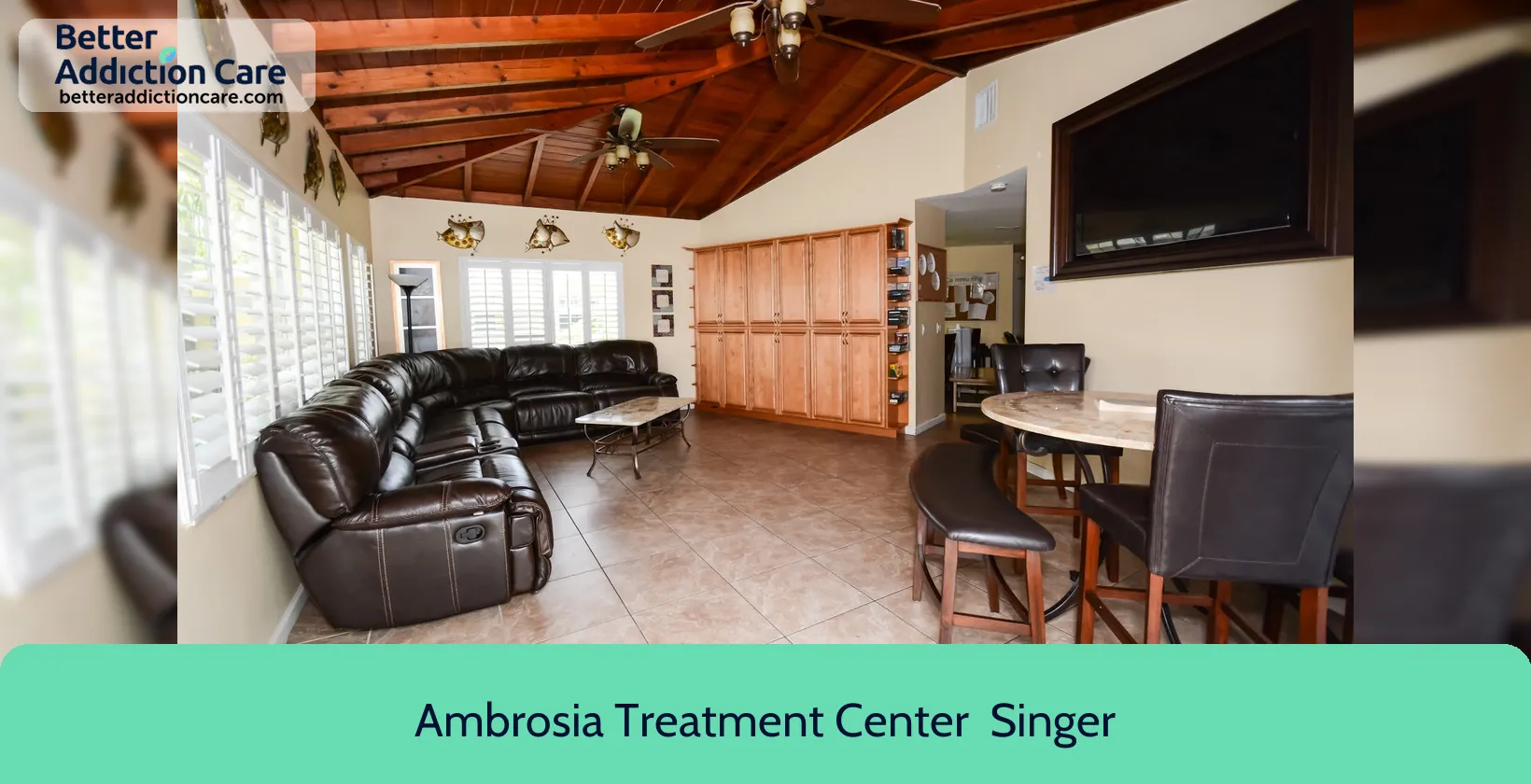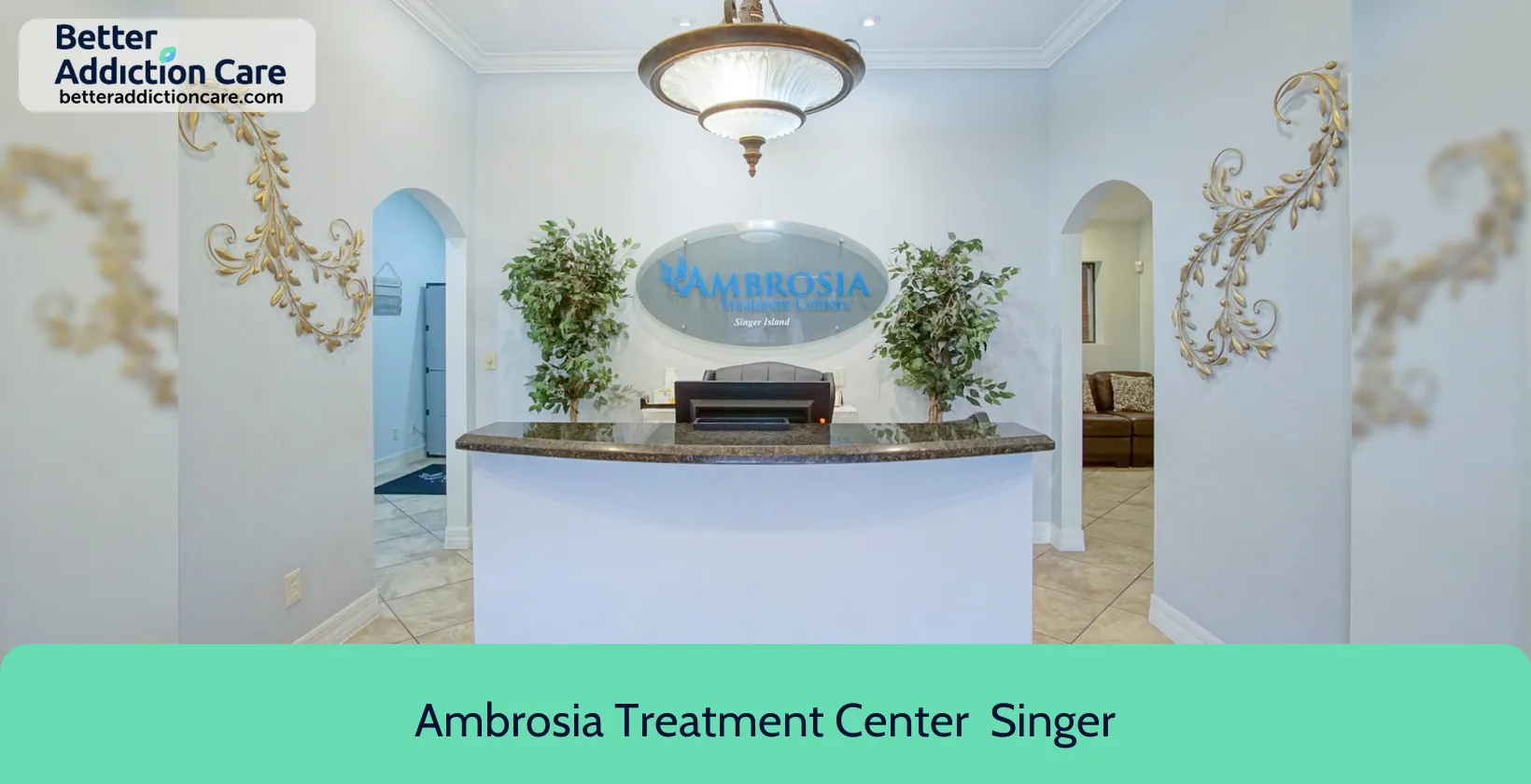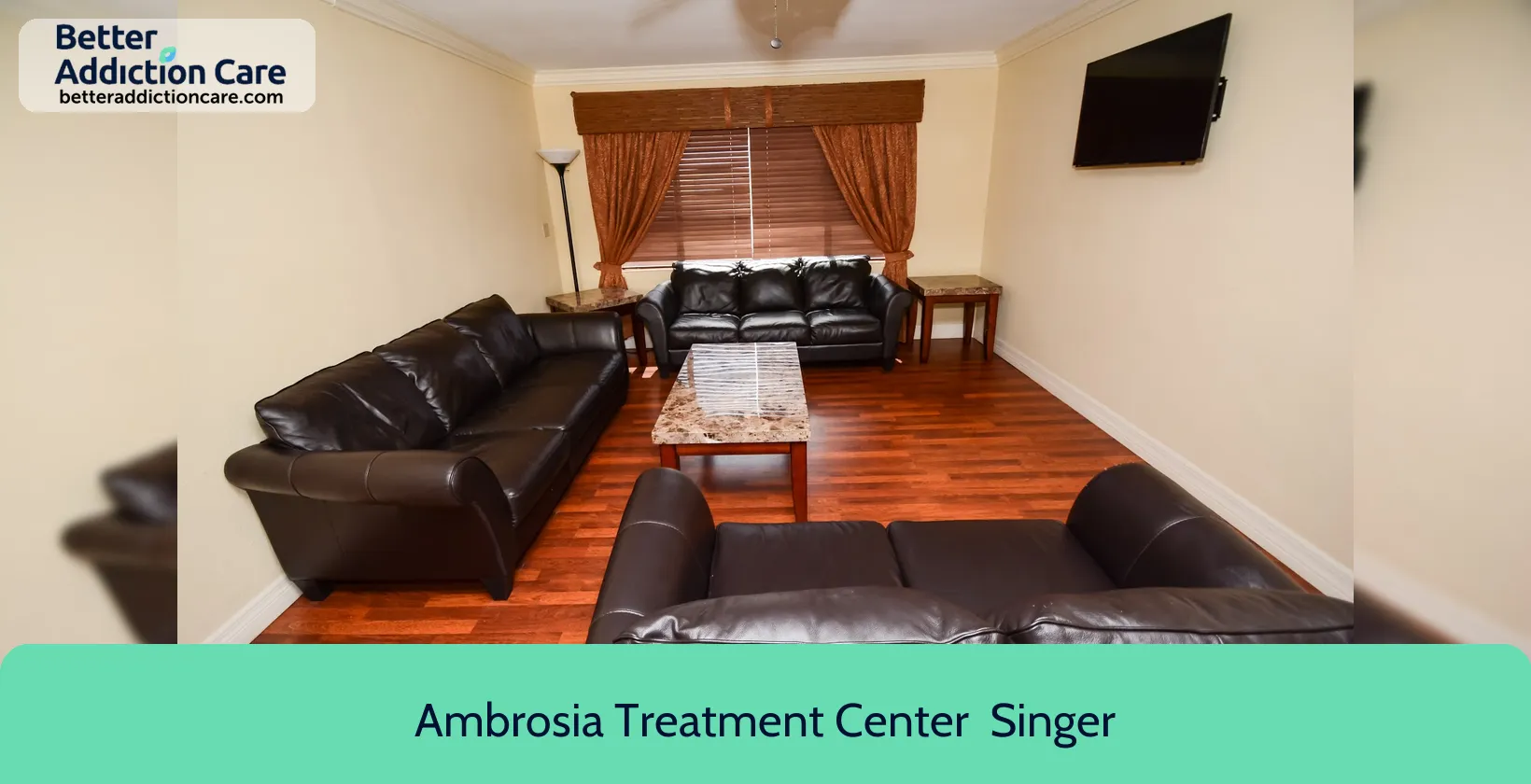Ambrosia Treatment Center - Singer Island
Overview
The West Palm Beach, Florida-based Ambrosia Treatment Center has been offering thorough treatment for co-occurring disorders, alcohol addiction, and drug use disorders since 2007. In order to provide specialized care for different populations, the hospital offers a wide range of programs, such as those for teenagers, first responders, veterans, and the LGBTQ+ community.
To meet the individual needs of every client, Ambrosia therapeutic Center uses a variety of therapeutic techniques, including individual therapy, dialectical behavior therapy (DBT), and neurofeedback. In addition, the facility has yoga and a swimming pool, which improve the healing atmosphere and encourage overall wellness.
Ambrosia Treatment Center - Singer Island at a Glance
Payment Options
- Cash or self-payment
- Private health insurance
- IHS/Tribal/Urban (ITU) funds
- Aetna
- Amerigroup
Assessments
- Screening for tobacco use
- Comprehensive mental health assessment
- Comprehensive substance use assessment
- Interim services for clients
- Outreach to persons in the community
Age Groups
- Seniors or older adults
- Adolescents
- Young adults
- Children/adolescents
- Seniors
Ancillary Services
- Case management service
- Suicide prevention services
- Acupuncture
- Domestic violence services, including family or partner
- Early intervention for HIV
Highlights About Ambrosia Treatment Center - Singer Island
7.97/10
With an overall rating of 7.97/10, this facility has following balanced range of services. Alcohol Rehabilitation: 8.00/10, Drug Rehab and Detox: 8.77/10, Insurance and Payments: 6.93/10, Treatment Options: 8.18/10.-
Drug Rehab and Detox 8.77
-
Treatment Options 8.18
-
Alcohol Rehabilitation 8.00
-
Insurance and Payments 6.93
Accreditations
State mental health department:
State mental health department accreditation refers to the process of evaluating and certifying the quality and standards of a state's mental health department, ensuring that it provides high-quality services and meets specific criteria for mental health care. The accreditation process is performed by a third-party organization and helps to improve the overall care and treatment of individuals with mental health conditions.
Drug Enforcement Agency (DEA):
DEA accreditation refers to the process by which a law enforcement agency is recognized by the Drug Enforcement Agency (DEA) as having met specific training, operational, and resource requirements necessary to participate in DEA-led drug enforcement efforts. This accreditation allows the agency to perform DEA-related tasks such as conducting investigations, executing federal search warrants, and participating in joint task forces.
The Joint Commission:

The Joint Commission accreditation signifies that a facility has met rigorous standards of excellence in patient care, treatment, and safety. It assures individuals and healthcare professionals that the accredited facility provides high-quality, evidence-based care for addiction and mental health issues, fostering trust and confidence in their services.
Effective date: 05/30/2015
Registration: 483210
State department of health:

Government agencies issue State Licenses, which grant rehabilitation organizations permission to conduct their operations lawfully within specific geographic regions. Licenses needed to operate are typically determined by the type of rehabilitation program offered by the facility and its physical location.
Registration: 1550AD790002
SAMHSA certification for opioid treatment program (OTP):
SAMHSA's Opioid Treatment Programs (OTPs) accreditation is a rigorous recognition process that signifies an OTP's commitment to providing high-quality care for individuals dealing with opioid use disorders. It assures patients, families, and the community that the program adheres to evidence-based practices, employs qualified staff, and maintains a safe treatment environment. This accreditation is a symbol of quality and accountability, offering confidence in the program's ability to support individuals on their path to recovery from opioid addiction.
Treatment At Ambrosia Treatment Center - Singer Island
Treatment Conditions
- Alcoholism
- Mental health treatment
- Substance use treatment
- Co-occurring Disorders
Care Levels
- Hospital inpatient treatment
- Outpatient
- Short-term residential
- Long-term residential
- Residential detoxification
Treatment Modalities
- Cognitive behavioral therapy
- Telemedicine/telehealth therapy
- Substance use disorder counseling
- Trauma-related counseling
- Smoking/vaping/tobacco cessation counseling
Ancillary Services
Additional Services
- Pharmacotherapies administered during treatment
- Mentoring/peer support
- Breathalyzer or blood alcohol testing
Special Programs
- Clients with co-occurring mental and substance use disorders
- Veterans
- Active duty military
- Members of military families
- Criminal justice (other than DUI/DWI)/Forensic clients
Common Questions About Ambrosia Treatment Center - Singer Island
Contact Information
Read our Most Recent Article About Drug Addiction
DISCLAIMER: The facility name, logo and brand are the property and registered trademarks of Ambrosia Treatment Center - Singer Island, and are being used for identification and informational purposes only. Use of these names, logos and brands shall not imply endorsement. BetterAddictionCare.com is not affiliated with or sponsored by Ambrosia Treatment Center - Singer Island.
